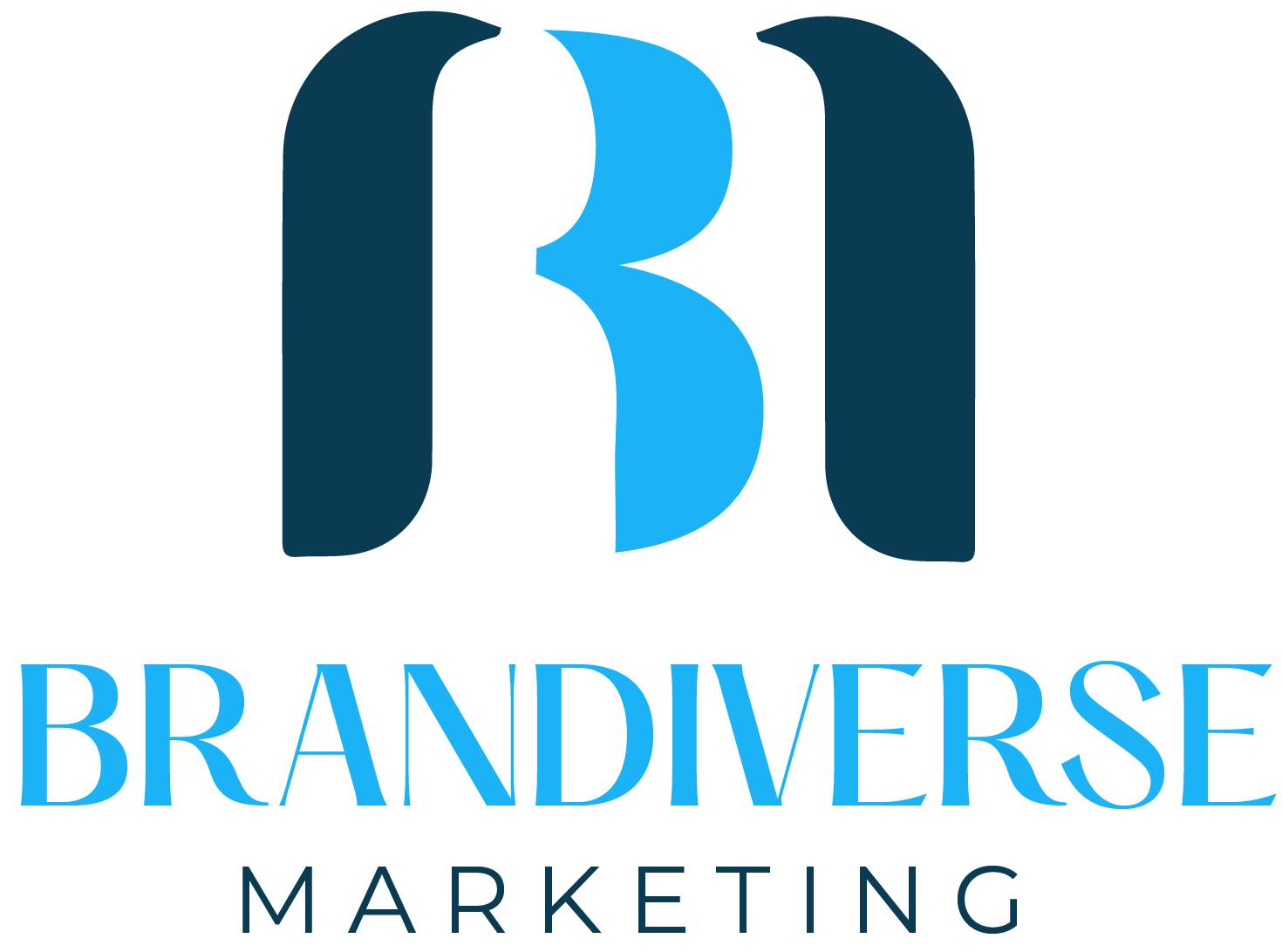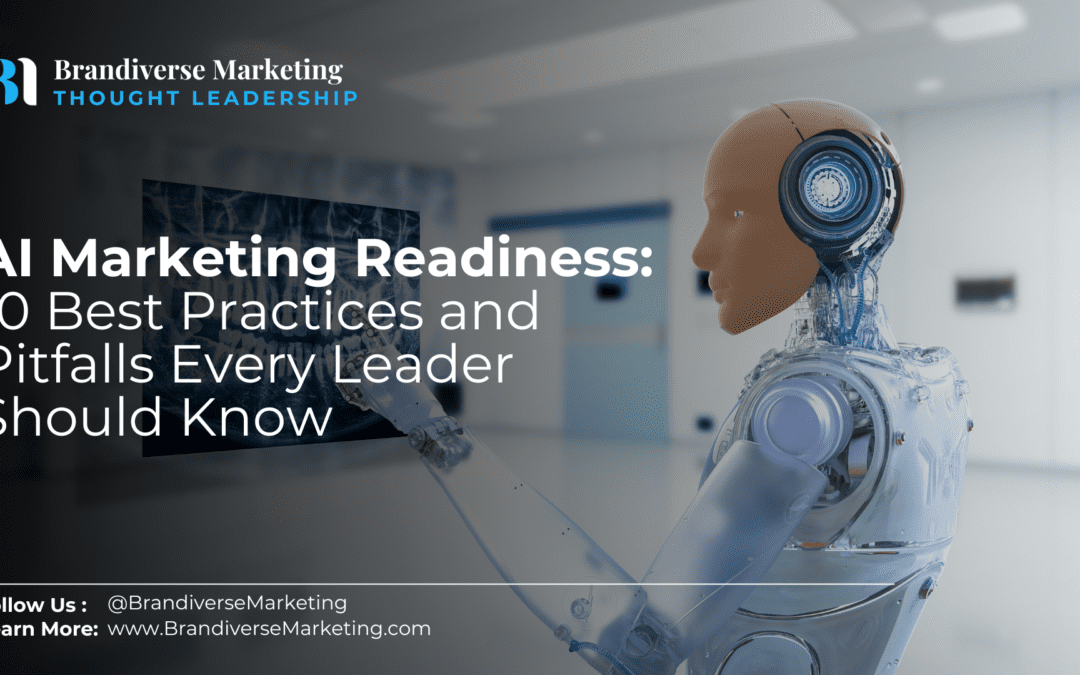According to a Salesforce study, mastering AI is now the #1 priority for marketers worldwide. As AI continues to revolutionize the marketing landscape, marketing leaders face a crucial challenge: how to effectively implement AI Marketing technologies and tools to drive meaningful results. Whether you’re just beginning your AI journey or refining your current strategies, this article is designed to equip you with the knowledge you need.
In this blog, we’ll dive into 10 essential tips that cover everything from selecting the right AI tools and enhancing data quality to avoiding common pitfalls that could undermine your efforts. You’ll learn how to think about AI use cases, foster team readiness, and stay ahead of the AI Marketing revolution. These insights will not only help you prepare for successful AI integration, but also maximize the value of your investment in AI-driven marketing.
Being AI-ready isn’t just about adopting technology; it’s about aligning strategy, infrastructure, and culture. With these best practices in hand, you’ll be better positioned to unlock AI’s full potential while avoiding costly missteps that can derail your marketing transformation
1. Understand the Role of AI in Marketing
AI is transforming how businesses approach marketing. But before diving in, it’s crucial to grasp where AI fits within your overall strategy. According to McKinsey, companies leveraging AI in their marketing can see a 30% increase in ROI. Effective AI implementation requires aligning AI use cases with your business goals, ensuring that each AI application delivers real value. Consider which AI-driven opportunities align best with your strategic goals.
Best Practice: Gain a comprehensive understanding of how AI can enhance various aspects of your marketing strategy, from personalization to customer insights.
Pitfall to Avoid: Jumping into AI without a clear understanding can lead to misaligned expectations and wasted resources.
2. Invest in AI Training and Education
For AI to truly benefit your marketing efforts, your team needs to be equipped with the right skills. Deloitte found that 73% of companies implementing AI saw improved customer satisfaction, largely because of well-trained teams. Regular training on AI-driven marketing trends, tools, and techniques is key to staying competitive. Is your organization ready for AI? Take our quick AI Readiness Assessment.
Best Practice: Equip your team with the necessary skills and knowledge through regular training and education programs on AI tools and techniques.
Pitfall to Avoid: Neglecting team training can result in underutilized AI capabilities and suboptimal results.
3. Start with a Pilot Project
A common mistake is jumping into large AI initiatives without proper testing. Starting with small pilot projects helps you validate the technology and refine your approach before scaling. Focus on specific AI use cases that can deliver measurable impact quickly, allowing you to fine-tune before broader implementation.
Best Practice: Begin with a small-scale pilot project to test and refine your AI strategies before a full-scale implementation.
Pitfall to Avoid: Implementing AI on a large scale without preliminary testing can lead to costly mistakes and setbacks.
4. Upgrade Your Technology Infrastructure
AI’s potential is only as strong as the technology supporting it. Outdated systems and siloed data will prevent AI from delivering optimal results. Modernizing your tech stack to include scalable, AI-compatible solutions is essential for successful implementation.
Best Practice: Ensure your technology stack is robust and scalable enough to support AI integration. This includes data management systems and processing capabilities.
Pitfall to Avoid: Relying on outdated technology can hinder the effectiveness of AI tools and limit your marketing potential.
5. Focus on Data Quality
AI thrives on data. But poor data quality can lead to inaccurate insights and misguided strategies. Investing in data governance and ensuring that your data is clean, complete, and relevant will significantly enhance AI’s effectiveness.
Best Practice: Prioritize collecting and maintaining high-quality, relevant data to feed your AI algorithms.
Pitfall to Avoid: Poor data quality can lead to inaccurate insights and flawed decision-making.
6. Implement Ethical AI Practices
AI can be a powerful tool, but it comes with ethical challenges like bias, privacy concerns, and transparency issues. Establishing clear guidelines for responsible AI use is crucial for building trust with your audience and avoiding potential legal pitfalls. Additionally, fostering AI literacy within your team is essential to ensure they understand not just how to use AI tools, but also the broader implications of their use. Ask yourself, do you have protocols in place to ensure responsible AI usage? Training your team on AI ethics, data privacy, and bias mitigation helps create a culture of responsibility as you scale your AI initiatives.
Best Practice: Establish clear guidelines for responsible AI use, including data privacy, governance, and bias mitigation.
Pitfall to Avoid: Ignoring ethical considerations can damage your brand’s reputation and lead to legal issues.
7. Enhance Personalization Efforts
One of AI’s biggest advantages is the ability to deliver personalized marketing at scale. By analyzing customer behavior and preferences, AI can help you tailor content, offers, and experiences that resonate with individual needs, boosting engagement and conversions. Gather with a cross-functional team and dtermine where AI-driven personalization could create the most impact for your brand. Hire faciliattor, like Brandiverse Marketing, to guide the process, ask the right questions, and help you execute on solutions.
Best Practice: Use AI to analyze consumer data and deliver personalized experiences that resonate with your audience.
Pitfall to Avoid: Overlooking personalization can result in generic, ineffective marketing efforts.
8. Leverage AI for Consumer Insights
Best Practice: Utilize AI analytics to gain deep, actionable insights into consumer behavior and preferences. Pitfall to Avoid: Failing to leverage AI insights can prevent you from fully understanding and engaging your audience.
9. Create Immersive Experiences
AI combined with AR and VR technologies can offer immersive brand experiences that captivate your audience. These cutting-edge solutions can differentiate your brand, making interactions more engaging and memorable. This about how virtual or augmented reality could elevate your brand storytelling. Need ideas? Check out our article on 12 Rules for Powerful Brand Marketing with Extended Reality.
Best Practice: Incorporate AI and AR technologies to develop engaging and interactive brand experiences.
Pitfall to Avoid: Ignoring immersive technologies can lead to missed opportunities for deeper customer engagement.
10. Regularly Review and Optimize
AI is not a set-it-and-forget-it solution. The most successful AI strategies involve regular review and optimization. By continuously evaluating performance, you can refine your approach and keep pace with evolving trends and technologies.
Best Practice: Continuously review and optimize your AI strategies to keep up with evolving trends and technologies.
Pitfall to Avoid: Stagnation in AI practices can result in outdated strategies and loss of competitive edge.
By following these best practices and avoiding common pitfalls, you can ensure your organization is well-prepared for successful AI marketing implementation.
Is your marketing ready for AI? Take our comprehensive AI Marketing Readiness Assessment to identify your strengths and areas for improvement. Start your journey towards AI-driven marketing success today!


